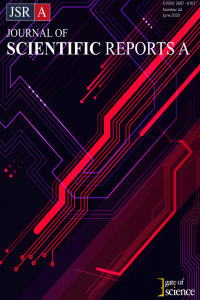ERZİNCAN KENTİ ATIKSULARININ KARAKTERİZASYONU ve GPS-X BİLGİSAYAR PROGRAMI KULLANILARAK MODELLENMESİ
atıksu arıtımı, nitrifikasyon, denitrifikasyon, GPS-X bilgisayar programı
CHARACTERIZATION of ERZİNCAN CITY WASTEWATER TREATMENT PLANT and MODELLED by USING GPS-X COMPUTER PROGRAM
___
- [1] U. Jeppson., 1996.,Modelling Aspects of Wastewater Treatment Processes., Phd Thesis., Department of Industrial Electrical Engineering and Automation, Lund Institude of Technology, Swedwn, p 12-85
- [2] M. Henze., C.P.L. Grady., W.Gujer., G.V.R. Marais.,T. Matsuo., 1987., Activated Sludge No.1-IAWPRC Scientific and Technical Report No.1, London, UK, p 1-35
- [3] M. Puteh., K. Minekawa., N. Hashimoto., 1999., Modelling of Activated Sludge Wastewater Treatment Processes., Bioprocesses Eng.,21,(2) 249.
- [4]G. Tchobanoglous and F.L., Burton, “Wastewater Engineering Treatment Disposal and Reuse.,McGraw-Hill International Editions, p 529-603
- [5] M. Henze., 1992., Characterization of Wastewater for Modelling of Activated Sludge Processes., Wat.Sci.Tech., 25, [6] B.B. Baykal and D. Büktel., 1992., Canlılığın Dahil Edildiği Modellerle Aktif Çamur Sistem Simülasyonları., SKKD., 2, (1), 29.
- [6] B.B. Baykal and D. Büktel., 1992., Canlılığın Dahil Edildiği Modellerle Aktif Çamur Sistem Simülasyonları., SKKD., 2, (1), 29.
- Başlangıç: 2020
- Yayıncı: Kütahya Dumlupınar Üniversitesi
ERZİNCAN KENTİ ATIKSULARININ KARAKTERİZASYONU ve GPS-X BİLGİSAYAR PROGRAMI KULLANILARAK MODELLENMESİ
İmre Ferah Göktürk, Avni Yücel Eryılmaz, Bahadır Yörür, Yıldız Yuluğkural
MURAT ÇAYI (KÜTAHYA) EPİLİTİK DİYATOMELERİ
15B35H BORLU ÇELİĞİNİN KURU KAYMA KOŞULLARINDA SÜRTÜNME VE AŞINMA DAVRANIŞININ İNCELENMESİ
[PtX4]2- (X = Cl ve Br) İYONLARININ TİTREŞİM FREKANSLARININ TEORİK OLARAK İNCELENMESİ
Funda Altınkaynak, Mehmet Fatih Kaya, Gürkan Keşan, Cemal Parlak
AKILLI EV SİSTEMLERİ VE UYGULAMASI
Gül Nihal GÜĞÜL, Müzeyyen SARITAŞ
ALABALIK TESİSİ SUYUNUN KAPİLER SERAMİK FİLTRELER İLE SÜZÜLEBİLİRLİĞİNİN ARAŞTIRILMASI
Osman ŞAN, Cem ÖZGÜR, Kazım UYSAL, Muhterem KOÇ, Tuba ERGÜLER, Ali İMARETLİ
BURSA İLİ TOPRAKSOLUCANLARI (OLIGOCHAETA, LUMBRICIDAE) ÜZERİNE BİR ÖN ÇALIŞMA
ANADOLU SİNCABI (SCIURUS ANOMALUS)’NIN LABORATUVARDAKİ BESLENME BİYOLOJİSİ ÜZERİNE BİR ARAŞTIRMA
